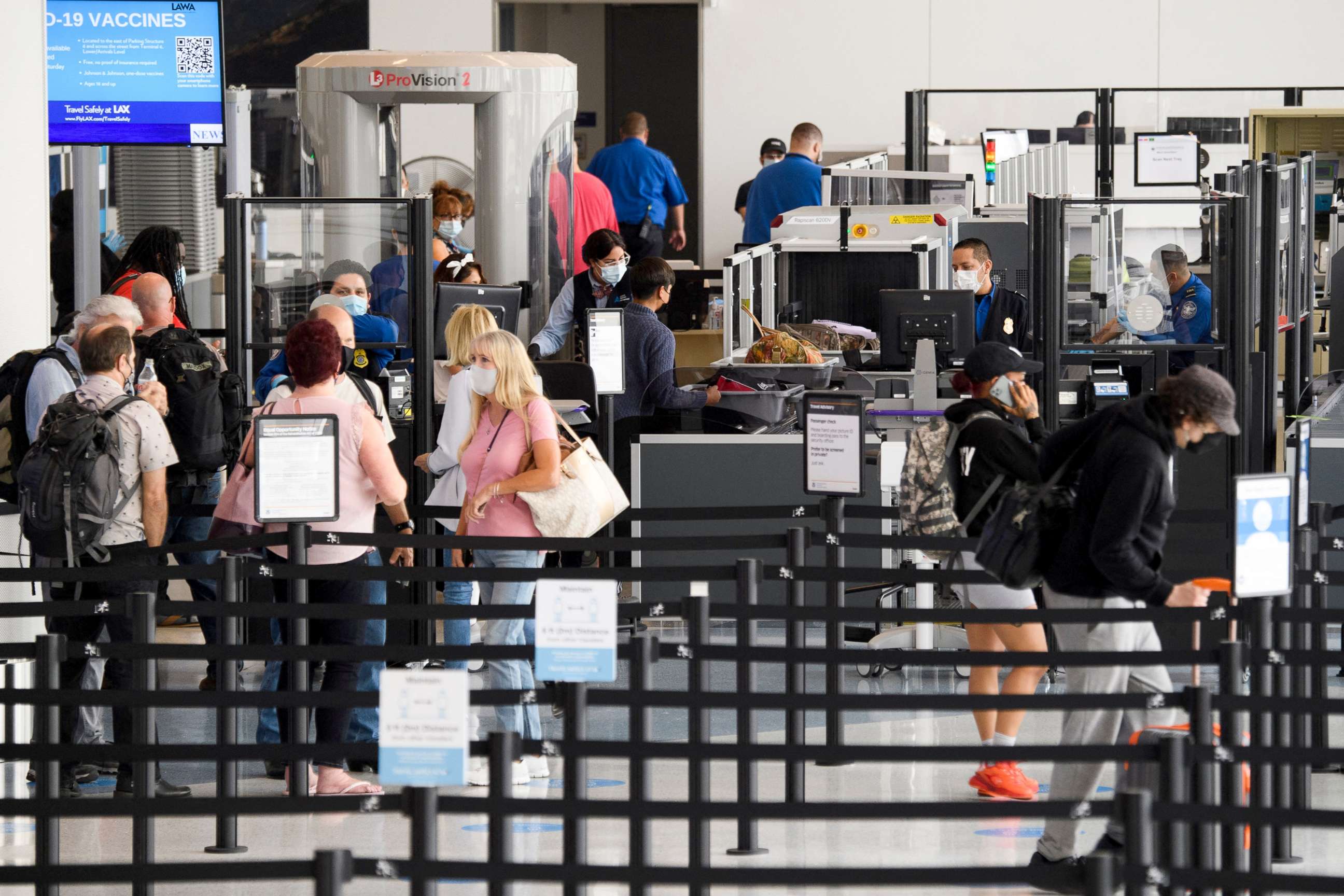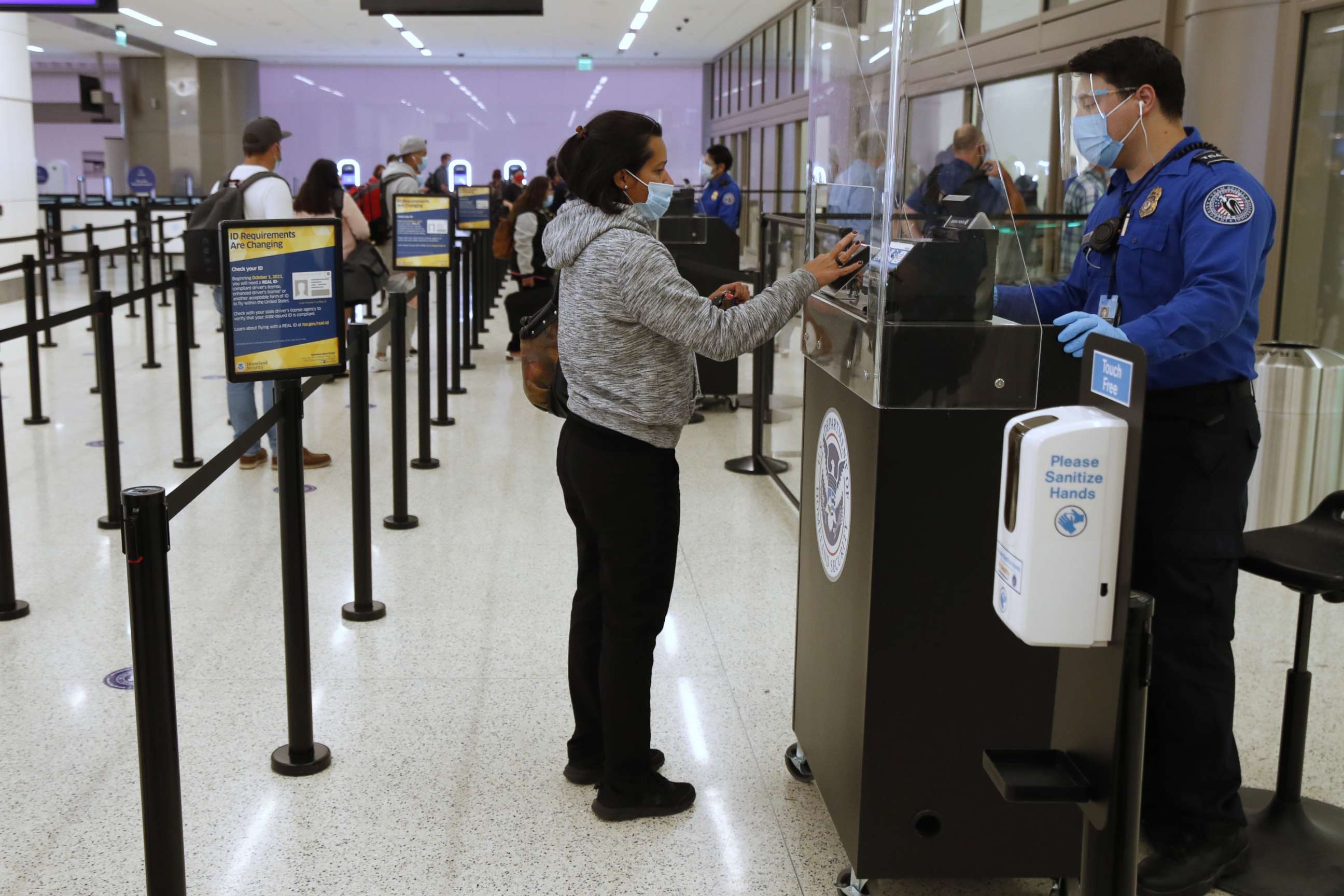Department of Homeland Security delays REAL ID deadline to 2025
The government has already delayed the program several times.
The Department of Homeland Security has delayed the deadline for air travelers to have a REAL ID another two years, the agency announced Monday.
The program, which was to begin in May 2023, will now not go into effect until May 7, 2025.
This is the third time the deadline has been extended.

The REAL ID deadline was most first delayed a year from Oct. 1, 2020, to Oct. 1, 2021, due to the COVID-19 pandemic. It was then extended another 19 months from Oct. 1, 2021, to May 3, 2023.
The new identification rules mandate any flyer over 18 will need to have a REAL ID-issued driver's license or another federally approved identification card if they are going to fly domestically.
"DHS continues to work closely with U.S. states, the District of Columbia, and the U.S. territories to meet REAL ID requirements," DHS Secretary Alejandro Mayorkas said in a statement about the latest delay. "This extension will give states needed time to ensure their residents can obtain a REAL ID-compliant license or identification card. DHS will also use this time to implement innovations to make the process more efficient and accessible. We will continue to ensure that the American public can travel safely."
The DHS again blamed the delay on COVID-19, saying the process was "significantly hindered" by state driver's license agencies having to work through a backlog during the pandemic.

The REAL ID Act was first instituted in 2005 in the wake of Sept. 11 to make screening by the Transportation Security Administration more secure.
Some advocates, including the U.S. Travel Association, had pushed for the delay for months. The U.S. Travel Association said in a statement in May, one year before the requirements were to take effect, "As we look ahead to next year's deadline, it is clear that Americans will not be ready for full implementation."
"We are calling on DHS to delay implementation or develop an alternative screening process for travelers with a legacy ID to ensure that air travelers and the industry's recovery are not impeded," it continued. "The delay should last until measures are in place to prevent a scenario in which travelers are turned away at airport security checkpoints."




